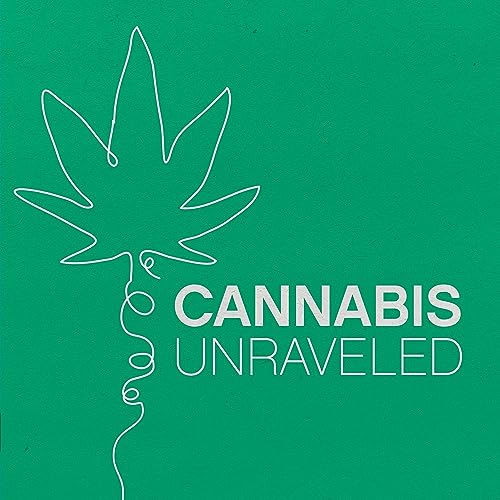In this episode, we shine a spotlight on the fascinating world of cannabis genetics. We’re joined by expert guests Ralph Risch, CEO of Phylos, and Jared Reynbery, Senior Director of Breeding of Phylos, a company with a rich history in cannabis genetics. Additionally, we’re joined by Dr. Matthew Indest, Technical Director of Agronomy and Plant Improvement at Curaleaf.
In this conversation, we'll explore how Phylos found their footing in the cannabis industry, and gain insights into the evolution of cannabis genetics. We will also discuss the elements and tools that are integral to a successful breeding pipeline, and the exciting technological developments that are currently underway.
**The information, opinions, and views expressed in this podcast are those of Mr. Kater and his guests only and may not reflect the views of Curaleaf or its employees. The material and information presented here is for general information purposes only. Curaleaf does not endorse or recommend any particular product or service discussed, including products containing cannabinoids. Products discussed in this podcast may not be available to all listeners depending upon the residence state of the listener, the listener’s age, etc. Any products discussed in this podcast are not intended to diagnose, treat, cure, or prevent any disease.
Topics of Discussion:
[1:08] Phylos’ start in 2014 as one of the first science companies in the cannabis industry.
[1:53] What is the “Phylos Galaxy”?
[3:38] How Phylos built a tool set that would enable them to rapidly breed.
[5:14] F1 Hybrid Seeds.
[7:04] What is a genetic marker?
[9:17] How cannabis compares to finding genetic markers compared to other industries?
[10:53] Are we able to establish the actual authenticity of a strain or genetics through these biomarkers? Example: Sour Diesel from dispensaries on the West Coast.
[14:43] While the genetic distinction between indica and sativa is unclear, the terms are still useful for describing how the plant grows or affects consumption.
[17:04] Are consumers making the right choice when they're just buying Indica and Sativa, or is there a better way to approach this?
[17:01] A lot of previously held assumptions aren’t true, and this is why Phylos is excited for this Cannabis 3.0 effects based approach.
[19:19] The tools and approaches used to have cannabis strains producing higher concentrations of a highly beneficial cannabinoid.
[21:02] The use of markers to accelerate the breeding.
[24:32] Breeding with intent.
[29:02] Have we reached or approached the upper limit of the potency we physiologically put onto the plant?
[32:15] The approach towards bringing out the incredible and diverse flavors and tastes that cannabis can now produce, including a…cheddar cheese / mango hybrid?
[43:07] What is Hop Latent Viroid (HLVd), and how do you test for it and potentially mitigate against it?
[49:05] The group shares their predictions on the big breakthroughs of cannabis and where we may be from a technological standpoint 10 years from now.
Want to Learn More?
Cannabis Unraveled: Instagram
Phylos
Ralph Risch | LinkedIn
Jared Reynbery | LinkedIn
Matthew Indest | LinkedIn
Dr. Selina Wang, UC Davis
Quotes:
- “Phylos was designed to really bring the cannabis plant into the modern era, and bring those traits to cannabis and also create F1 hybrid seeds lines, which are something we think ultimately enable the lowest cost production.” – Ralph [3:00]
- “The key next step for us was not just genotyping the plants, but phenotyping them. So gathering data on all of the interesting traits and then marrying up that data with the genotype data.” – Ralph [12:08]
- “The more that we have worked with the rare cannabinoids and not just on the cultivation, but now extraction, post processing, formulation and efficacy testing, the more we realized that a lot of the previously held assumptions are just not true.” – Ralph [17:01]
- “I think we're now in a place where you can do the science, the research, you can have subjects consuming, and you can find out what effects they're really feeling. So, it should be a lot less subjective than it used to be.” – Ralph [18:01]
 54 mins
54 mins 57 mins
57 mins 55 mins
55 mins 41 mins
41 mins 49 mins
49 mins Aug 22 20231 hr and 1 min
Aug 22 20231 hr and 1 min 1 hr and 1 min
1 hr and 1 min 57 mins
57 mins
